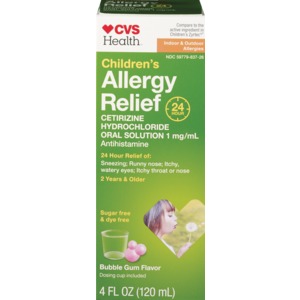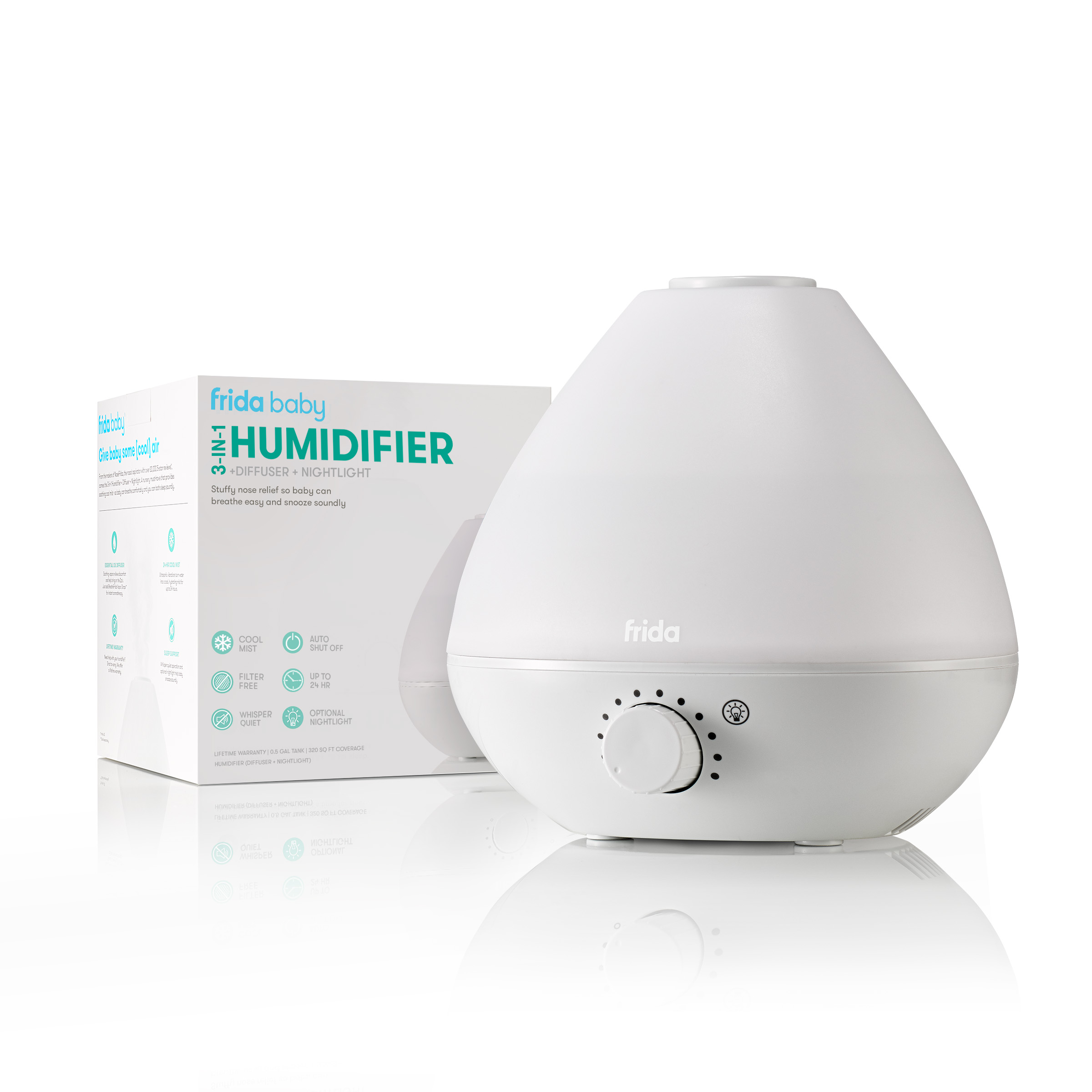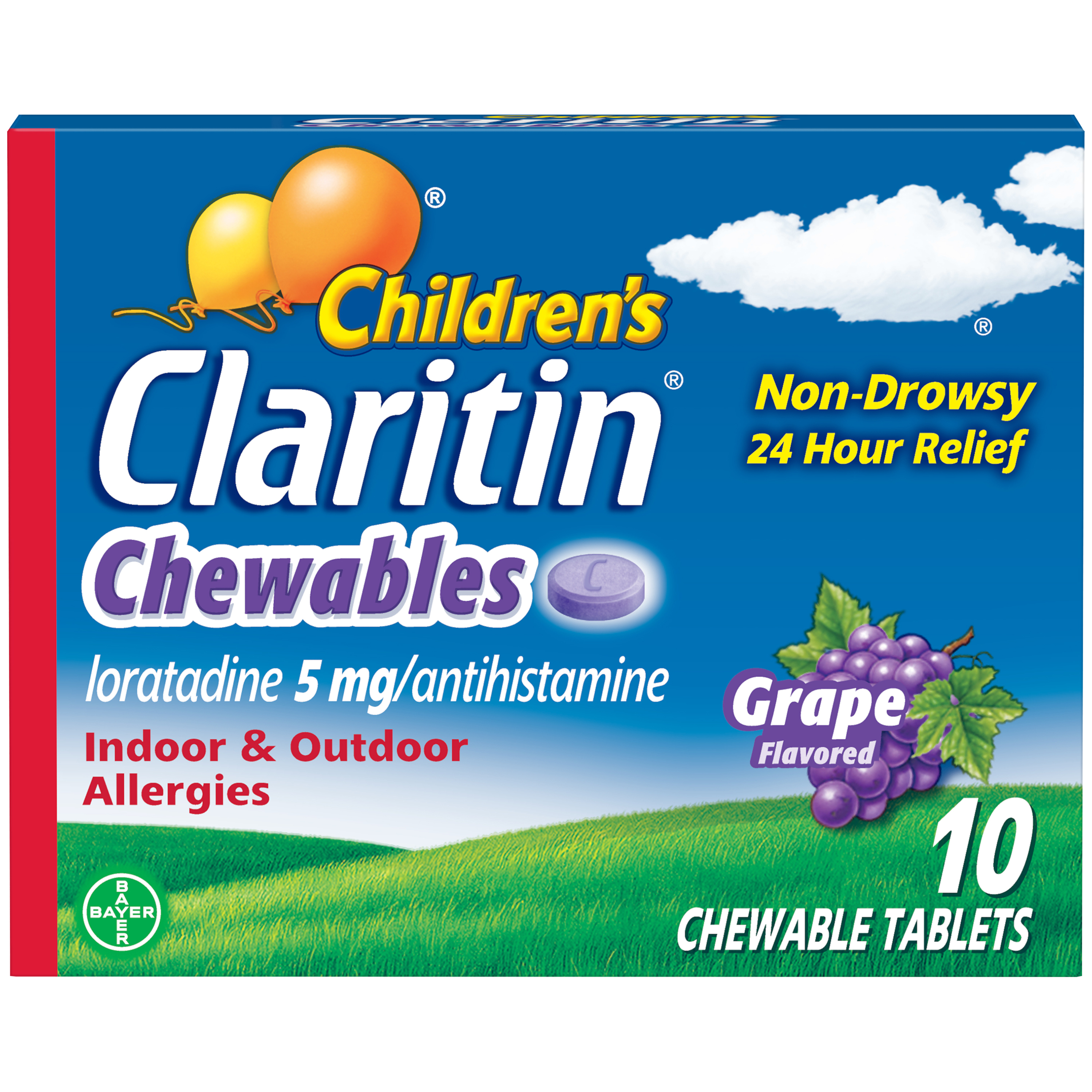Baby & Kids Allergy
)
)
+ 2 options
)
)
)
)
)
Shop more baby & kids health
Infant Allergy Medicines for Gentle Relief
Keep your little ones comfortable with infant allergy medicines. These gentle products, designed for young children, help quickly relieve allergy symptoms, such as itching and hives.
Toddler Allergy Medicine
Most babies and infants won't exhibit symptoms of environmental allergies, but this can change once your child reaches toddler-age, which is typically around 18 months. They may begin to show allergy-related symptoms like an itchy nose, nasal congestion, itchy eyes, sneezing, and coughing. If you notice these symptoms, it's important to talk to your pediatrician right away. They can determine what's causing the allergies and get you the infant allergy relief your child needs to feel better. Some common allergies in children are a result of outdoor pollen, pet dander, dust mites, or mold. Many kids will outgrow these allergies, but if you can give them the right treatment, their symptoms will be less severe.
Infant Allergy Relief
Once your child's doctor has determined that they have allergies, it's time to treat the problem. First, reduce or eliminate exposure to the allergen as much as you can. For example, if your child is allergic to dust mites, you'll want to wash bedding and clothing more often and keep surfaces dusted regularly. Your pediatrician may prescribe infant allergy relief that contains antihistamines to minimize any allergic reactions. It's important to note that these types of treatments are not typically recommended for children under the age of two. Cortisone creams are a good choice if your infant is dealing with skin allergies.
Best Allergy Medicine For Kids
Never give an infant any new mediation without checking with your pediatrician first. They may determine that your baby needs to simply "grow out" of the allergies. The doctor may give you some specific advice about how to keep allergy symptoms minimized without the use of medication. If you decide to give your child infant allergy relief products, read the label carefully. Make sure that it's appropriate for your child's age and check the potential side effects. Monitor your child carefully when you give them new medication and do your best to keep their allergies at bay by reducing their exposure to allergens until their symptoms subside.
Related Products
baby medicine dispensers, baby pain relief, baby teething, baby thermometers, baby vitamins, baby accessories, baby chest rub, baby and kids sleep supplement, prenatal and postpartum care products
Can You Give an Infant Allergy Medicine?
Certain allergy medicines are suitable for infants as young as 6 months. However, only use these products in children this young under your doctor's direction because other conditions may mimic allergies, and young kids can also be more susceptible to medication side effects.
What Allergy Medicine Is Safe for Infants?
One of the easiest ways to choose the best infant allergy medicine for your little ones is to ask your doctor or pharmacist for advice as they can help point you in the right direction. In general, only use over-the-counter products specifically designed for children as infant allergy medicine dosages are smaller, matching their unique needs.
Products such as Children's Benadryl are popular. You can use Benadryl and similar medicines for occasional allergies experienced by kids aged 6 to 11, but discuss use with your doctor first if your children are younger. Prescription products are usually preferred for infants between 6 months and 2 years old as they make it easier for you to administer the smaller dose required.
How to Use Allergy Infant Medicine
Infant allergy medicines typically come in liquid form, usually with added flavoring to help make treatment more comfortable for your little ones. If your doctor has recommended using one of these medications, they may have given you specific dosing instructions matching your child's age and weight. Otherwise, reading the packaging is vital to ensure you understand how to dose the product.
Using a suitable measuring instrument, such as a plastic syringe or a medicine cup, pour the recommended amount of allergy medicine. A syringe is often easier to use if your children are too young to take the product themselves, as you can squirt the medication directly into their mouth.
Nasal sprays, such as Children's Flonase Sensimist, work a little differently. Children may find these products complicated to use, so show them how to use them, and provide supervision during each dosage. It's usually better to administer each dosage yourself if your kids aren't old enough to understand how the product works.
FOR UPPER RESPIRATORY CAMPAIGN: Use products only as directed. Talk to your doctor if you have any questions.
)
)
)
)
)
)
)
)
)
)
)
)
)
)


)
)